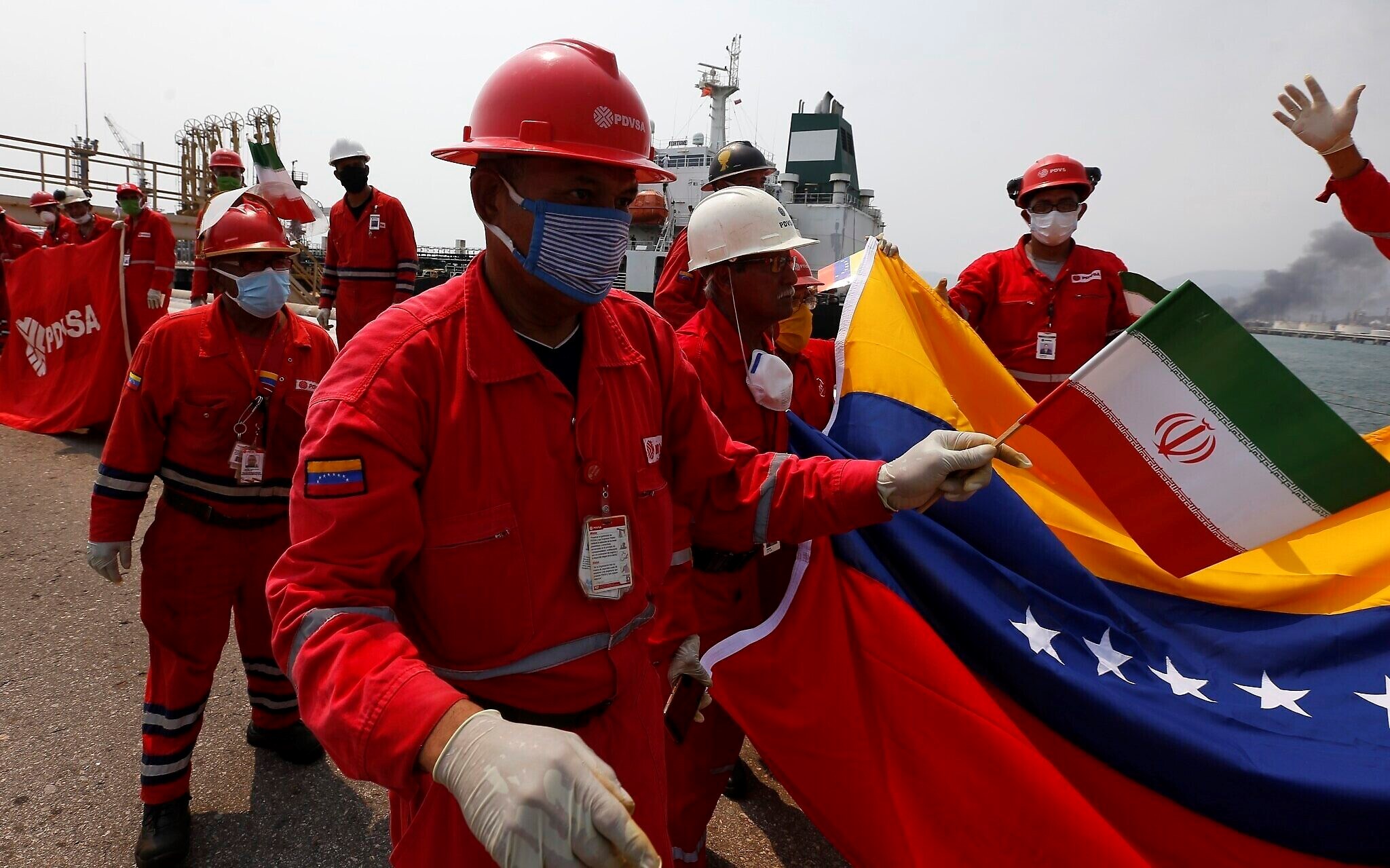Iran reveals first home-made catalyst to be used in Venezuela refinery
The catalyst was ordered by Venezuelan authorities during President Nicolas Maduro's trip to Tehran back in June 2022.
-

A Venezuelan oil worker holding a small Iranian flag attends a ceremony for the arrival of Iranian oil tanker Fortune at the El Palito refinery near Puerto Cabello, Venezuela on May 25, 2020. (AP)
Iranian fuel company NIORDC,sponsored by the country’s Oil Ministry, revealed its first homemade catalyst intended to be installed at a cracking unit in a refinery in Venezuela, where fuel production suffered impediments as a result of parts shortages caused by US sanctions.
Manufactured by Eksri Novin Asia, the catalyst was unveiled in a ceremony in Tehran, which Iranian deputy oil minister Jalil Salari, who runs NIORDC, was attending. The company's website states that the product is the first of its type made in the country and is to be installed in a refinery in another country.
Earlier reports demonstrate that the catalyst was ordered by Venezuelan authorities during President Nicolas Maduro's trip to Tehran back in June 2022.
The first overseas Iranian-built refinery in Venezuela was launched in October 2022, called El Palito, which has a capacity of refining 100 thousand barrels per day from Venezuela crude oil.
Read next: In defiance of sanctions, Iran's oil exports on the rise: Minister
Back in 2018, Iranian firms were able to manufacture catalytic cracking devices for the country’s own refining industry.
Just this past April, Iran and Venezuela signed a number of memorandums of understanding on the development of oil and gas fields, the reconstruction of refineries and petrochemical complexes, and oil trade.
In defiance of unilateral US sanctions, Iran has consistently sent fuel tankers to Venezuela in the past few years and helped in refinery repairs.
PDVSA, the Venezuelan state-owned oil and natural gas company, relies on Iranian South Pars condensate to convert its heavy oil to exportable grades. Iranian crude oil is also refined into motor fuel in South America.
Since 2020, the two countries have worked on expanding cooperation, especially in energy projects and oil trade, amid the draconian US sanctions that they have repeatedly been subject to. This has helped both countries ease the effects of the sanctions on their economies.
Read more: Maduro criticizes Europeans' lack of response to Quran-burning

 2 Min Read
2 Min Read








